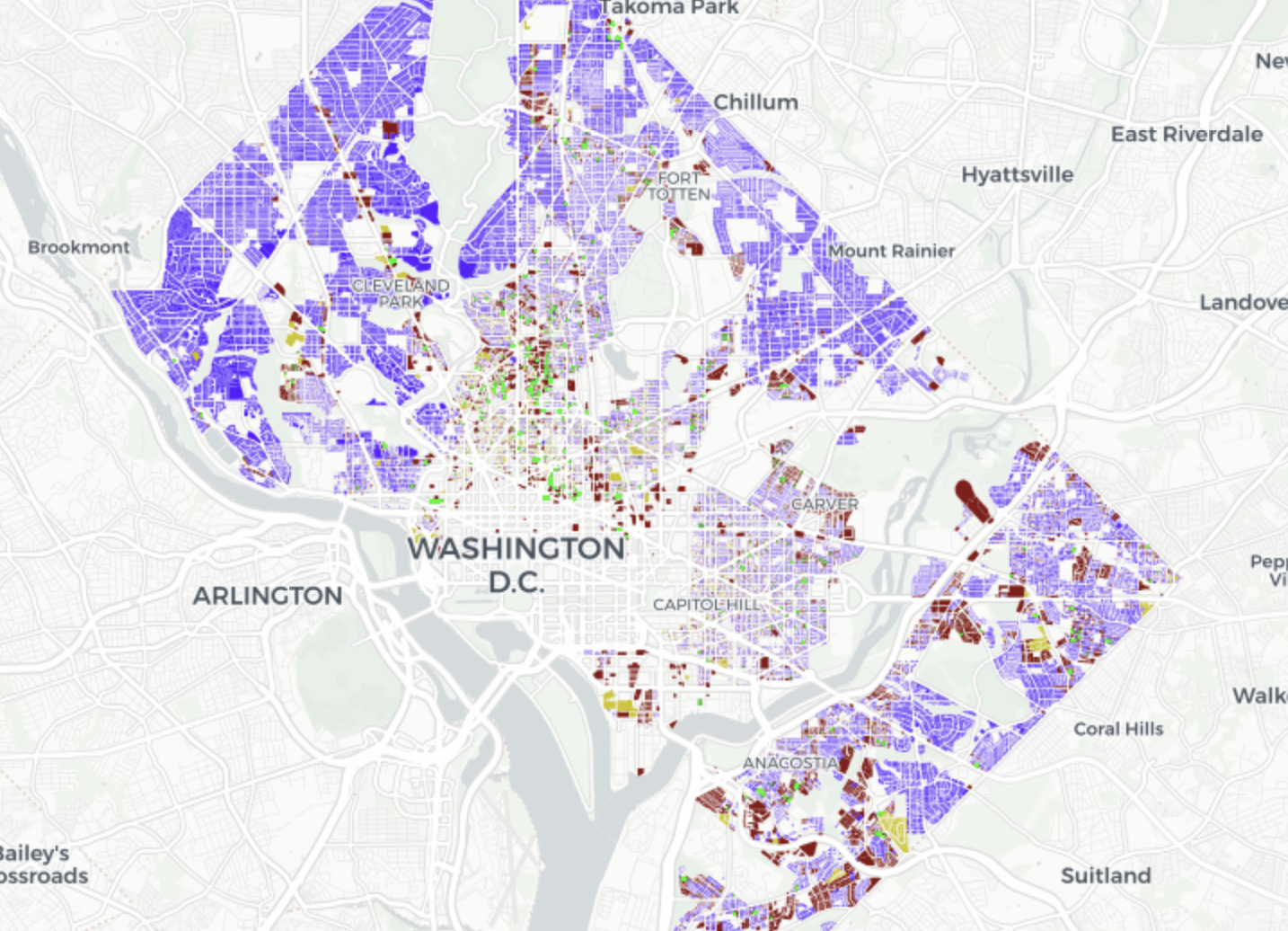FOR IMMEDIATE RELEASE
Taking Stock of the District’s Housing Stock: Capacity, Affordability, and Pressures on Family Housing
Washington, D.C., March 27, 2018—A new report from the D.C. Policy Center provides the first comprehensive picture of the District’s housing stock and how well it is equipped to support a diverse city with a growing population.
The report, “Taking Stock of District’s Housing Market: Capacity, Affordability, and Pressures on Family Housing,” finds that in absolute terms, the District has many more family-sized units than families; however, many of these larger units are occupied by affluent singles and couples, or by seniors who are unwilling or unable to downsize. Meanwhile, there are not enough smaller units to satisfy the demand from small households. The District has 154,000 units that suitably-sized for up to two persons, but has 208,000 housing units with one or two persons living in them. In contrast, there are an estimated 96,000 units large enough to comfortably accommodate a family of four or more, but only 39,000 units in the District are occupied by households of this size.
Furthermore, land-use and zoning policies restrict the amount and mix of housing supply in many highly-resourced areas of the city that have family-friendly amenities, while a lack of investments in other parts mean that affordable family housing lacks resources that would help families thrive. Both dynamics limit the city’s inclusiveness, amplifying gentrification, economic segregation, and the loss of low- and middle-income families.
Alice M. Rivlin of The Brookings Institution, who co-chaired the District’s first Housing Strategy Task Force, said that the report is an important resource for policymakers. “Housing policies are crucial to inclusiveness in a land-constrained city like D.C.” Rivlin said. “Housing affordability is one of the most pressing issues facing our city. This report is a breakthrough in understanding housing pressures across the District and illuminates the choices facing policy-makers seeking to ensure the availability of affordable housing for low- and middle-income families.”
Yesim Sayin Taylor, the founding Executive Director of the D.C. Policy Center, authored the report. “This report tells us two things: First, that any new housing for small households—including singles, couples, and seniors—can have a big impact on improving housing availability and affordability for all residents.” Sayin Taylor said. “Second, the District should do much more to make the most out of its existing land, both by encouraging more density in highly-resourced neighborhoods and by investing in under-resourced neighborhoods with an underutilized land.”
The report finds that some neighborhoods in the Northeast and Southeast quadrants of the city have significant housing stock that is affordable to low- and middle-income families, but lack the resources families need to thrive–resources such as good schools, safe streets, and access to transportation, quality retail, and employment centers. Meanwhile, some neighborhoods in the Northwest quadrant of the city have tremendous amenities and resources, but because of restrictive land use and zoning regulations, they lack the mix of housing that would make them inclusive and accessible to a wider range of incomes.
“In terms of their impact on the District’s housing supply and housing affordability, land use restrictions and zoning regulations might be as detrimental as the Height Act, if not more so,” Sayin Taylor said. “If we invest in our under-resourced neighborhoods and make more room for more families in others, we can dramatically increase the number and type of affordable units available to families in D.C.”
Among the report’s other key findings are the following:
- The District has very few starter homes that are affordable to middle-income families (under $560,000, which under typical measures would be considered affordable for a family whose income is at or below the Area Median Income). The report estimates that there are only 4,700 single-family homes that are between 1,500 and 1,800 square feet and have at least two bedrooms in this price range. Only two were located in neighborhoods west of Rock Creek Park.
- The District’s housing and land use policies, combined with disparate resources across communities, have created a segregated housing market: The least and most affordable housing units in the District are located in neighborhoods that are completely separated from each other, at opposite ends of the city.
Most measures of housing supply tend to focus on new housing, but as a recent article from the Brookings Institution points out, policymakers need a full picture of the city’s actual housing stock. Discussions of housing supply also tend to focus on the number of units produced, without discussion of the size, quality, location, or price of these units. In a city like D.C., where racial and economic disparities divide residents across the city, a deeper understanding of the housing stock is necessary to see where and how opportunity is distributed within the District’s borders, and what can be done to improve housing quality and affordability for all.
In order to produce a more comprehensive picture of the District’s housing supply, the report creates a new housing dataset that draws on information from multiple data sources—the District’s tax rolls, three different assessment databases for single family homes, rental units, and condominiums, and two spatial files that map each unit to a specific lot—to estimate the number of housing units in the city, the types of buildings that contain housing units, and the capacity of each unit. It also develops a methodology to estimate the potential affordability of each unit.
Read more in the report summary and in the full report (also available as a PDF).
###
Contact
Yesim Sayin Taylor
Executive Director, D.C. Policy Center
media@dcpolicycenter.org
